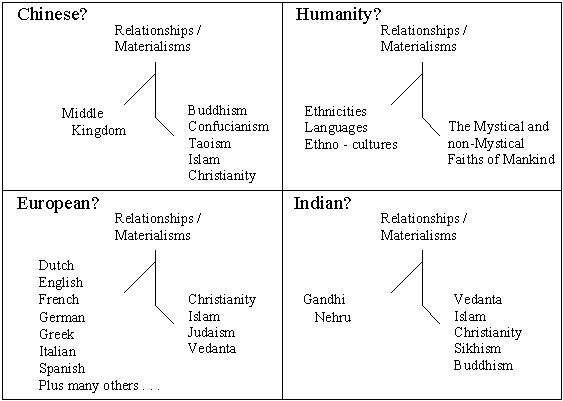The Scopes Monkey Trial of 1925
An important event in the history of the conflict between the Theory of
Evolution and belief in a Divine Creation occurred in Dayton,
Tennessee in 1925. John Scopes, a 24-year old high school biology teacher cum football coach at the town's Rhea High School was on trial
for contravening the state's Butler Act of March, 1925, which forbade the teaching of
"any theory that denies the story of the Divine Creation of man as
taught in the Bible, and to teach instead that man has descended from a
lower order of animals."
At this time similarly intentioned laws had already been passed in Oklahoma, Florida, Mississippi, North Carolina and Kentucky.
Given the passing of the Butler Act John Scopes had consulted with the school principal about whether he
should continue to use a standard text known as Hunter's Civic Biology, which presented content consistent with
the Darwinian Theory of Evolution, as his classroom textbook.
In the event the school principal supported John Scopes in continuing to teach biology, and an idea of evolution as suggested by
Charles Darwin, as he had done before the passing of the new state law.
As events unfolded the leading protagonists in contestation of the case were an high-profile
conservative religious spokesperson, the former US Secretary of State, (under Woodrow Wilson), and three times
Presidential candidate: William Jennings Bryan. Opposing him was a leading
intellectual and lawyer: the 68-year old Clarence Darrow who had previously had a prominent career in defending leaders of organised
labour in industrial disputes and who, in this upcoming case against John Scopes, enjoyed the support of the ACLU, (the American Civil Liberties Union), which sought
to limit the influence of religious fundamentalism in US classrooms.
Clarence Darrow had actually taken some trouble in volunteering his services in the defence of the principle of John Scopes being
permitted to continue to teach science
consistent with the Theory of Evolution. William Jennings Bryan, meanwhile, had probably come to the end of his high-powered political career
and was prepared to indulge his own, more recently embarked upon, passion for tent-revivalist style evangelism by making his own abilities
available in the presentation of the case for the
prosecution in what was to become known of as the Scopes Monkey Trial.
On 10 July, 1925, the presiding Judge John Raulston began the trial by reading the first 27 verses of the biblical Book of Genesis which treat very unmistakeably with
divine creation as the cause of existence. The jury itself being drawn from the largely bible-believing population of the Dayton, Tennessee area.
Darrow's initial approach was to present scientifically accepted expertise in support of lessons in science subjects being
presented in line with evolutionary theory. The defence objected to this presentation of what they regarded as evolutionary heresies.
Given the prosecutions objections Judge Raulston required the jury to withdraw to the jury room whilst he himself heard a sample of
the scientifically endorsed evidence in open court. The testimony as presented was attacked, on religious grounds, by the prosection and also
seemed to give considerable offence to the religious sensibilities of most of the onlookers to the trial proceedings.
Given the uproar Judge Raulston ordered a recess only to re-appear in court the following morning to rule that he held that neither
evolution nor creationism were on trial but that the issue to be addressed was John Scopes alleged violation of a specific state law
against presenting teaching that conflicted with the idea of Divine Creation.
The trial quickly
degenerated into a media circus.
Although Scopes was found
guilty, it was generally felt that he and Darrow had won a moral victory.
Nonetheless, popular opposition to acceptance of the Theory of Evolution remained high, with the
result that most textbooks made little or no mention of evolution until
the early 1960's. Those that discussed it often omitted it from their
index.

The Faith versus Reason Debate
The Wisdoms and Insights available on our
site include some about Human Existence itself:-

If Charles Darwin were alive today we at Age-of-the-Sage would be urgently seeking to interest him
in our discovery of the fact that there is close agreement between several major World Faiths, Plato,
Socrates, Pythagoras and Shakespeare in suggesting that Human Wisdom / Spirituality is relative to
Human Desire / Materialism and to Human Wrath / Ethnicity.
|
|
![[Scopes Monkey Trial, Tennessee, 1925 charles darwin]](../enlightenment.gif)
![[Scopes Monkey Trial, Tennessee, 1925 charles darwin]](../enlightenment.gif)